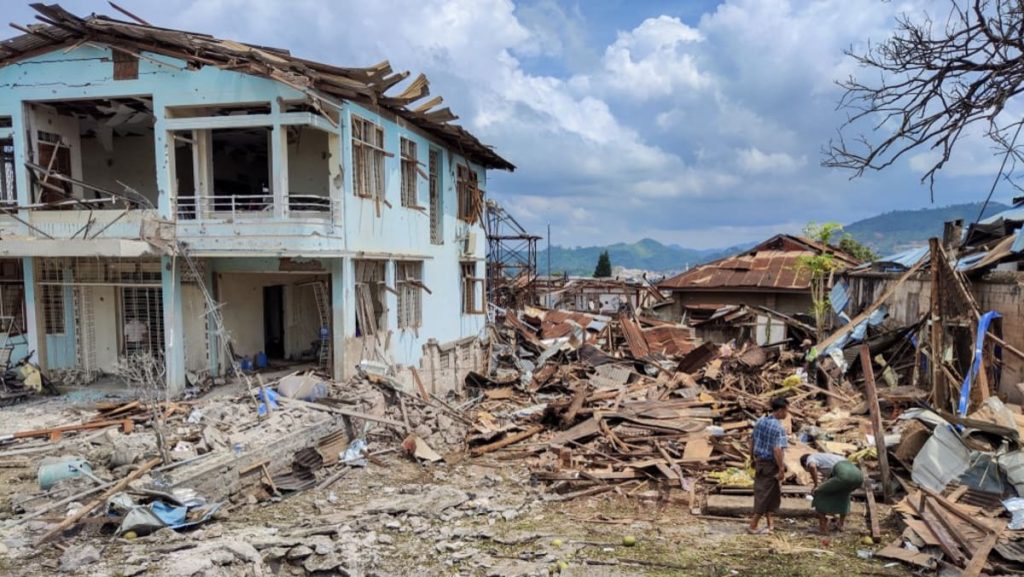Myanmar’s military junta conducted air strikes on an opposition-held town after issuing a surprise invitation for talks with their enemies. This move was seen as an attempt to maintain a relationship with China and potentially push for new elections. However, two prominent armed groups quickly rejected the offer. The junta is facing challenges from ethnic minority armed groups and pro-democracy forces that have risen up against their seizure of power, capturing border crossings and even cities like Lashio, making it the largest urban centre to fall to rebels since 1962.
The invitation for talks was seen as a significant departure from the junta’s previous stance of wanting to eliminate the opposition forces. The International Crisis Group noted that it was the first time the regime had expressed a willingness to engage in dialogue with the post-coup resistance. However, this gesture was met with skepticism by many, especially in light of the continued military offensives, such as the air strikes on Lashio in northern Shan state, controlled by the Myanmar National Democratic Alliance Army (MNDAA). Reports of casualties and injuries from this attack highlight the ongoing violence and instability in the country.
Despite the call for dialogue, the actions of the junta have not demonstrated a true commitment to reconciliation. Many observers remain doubtful of the sincerity of the invitation for talks, especially as military operations continue to target opposition-held territories. The lack of genuine efforts toward peace and reconciliation raise questions about the junta’s true intentions and whether they are truly interested in finding a peaceful resolution to the conflict in Myanmar. The ongoing violence and unrest in the country further complicate the prospects for meaningful dialogue and a peaceful resolution to the crisis.
The military’s continued offensive and reluctance to engage in genuine dialogue with the opposition forces suggest that the situation in Myanmar is far from being resolved. The junta’s actions indicate a preference for military crackdowns rather than pursuing peaceful negotiations. This stance is likely to prolong the conflict and lead to further devastation and suffering for the people of Myanmar. The international community will need to continue to monitor the situation closely and put pressure on the junta to engage in meaningful discussions with the opposition in order to bring about a peaceful resolution to the crisis in the country.
Overall, the situation in Myanmar remains volatile, with the military junta continuing to use force to suppress opposition forces. The invitation for talks was met with skepticism due to the ongoing military offensives, such as the air strikes on Lashio, which have resulted in casualties and injuries. The lack of genuine efforts towards reconciliation raises doubts about the junta’s true intentions and commitment to finding a peaceful resolution to the conflict. Without meaningful dialogue and a genuine willingness to engage with the opposition, the prospects for peace and stability in Myanmar remain uncertain.


